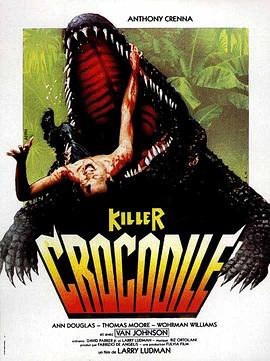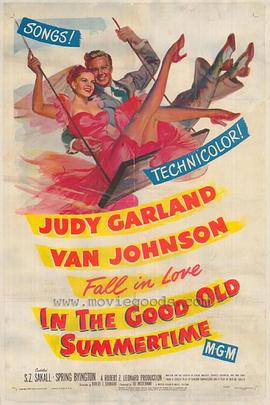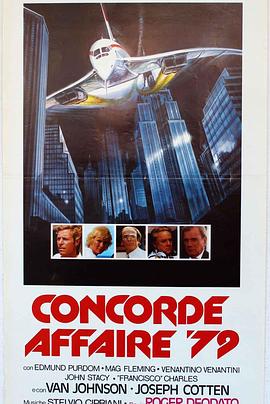范·强生
搜索"范·强生" ,找到 6部影视作品
导演:
/
恩佐·卡斯特拉里,
主演:
剧情:
二次世界大战,希特勒妄图入侵英国本土,摧毁英国研发的雷达系统和空军基地指挥部。英军陆军上尉保尔(弗雷德里克·斯塔福德 Frederick Stafford饰)发现德国特工可能冒充英国士兵潜入英国,因此奉命搜捕这群德国特工。与此同时,德国特工人员已在克鲁格(路易吉·皮斯特李 Luigi Pistilli饰)的率领下,在英国展开了秘密活动。
《伦敦上空的鹰》以二次世界大战为时代背景,故事则以真实事件为原型,用记录戏剧的风格描写了德国纳粹在1940年空袭英国本土,致使英国损失惨重的战争故事。本片由上海电影译制厂配音,童自荣、毕可、乔臻、丁建华等知名配音演员倾情献声。©豆瓣
导演:
/
理查德·布鲁克斯
剧情:
伊丽莎白·泰勒主演的爱情悲剧。二战后,美国大兵查尔斯·威尔因想在文艺界发展而留在巴黎,一个偶然的机会认识了富有的艾斯渥家族的一对姐妹:海伦和玛莉安,并与二小姐海伦结婚,在巴黎定居后查尔斯·威尔开始着手写作,但却遭到一连串的退稿。查尔斯·威尔因此非常郁闷整日酗酒,造成夫妻失和,二人在外游荡乱交朋友。在一暴风雨夜,海伦因丈夫醉酒而被锁在门外,海伦因此患肺炎去世,女儿也因其酗酒被法院判给了海伦的姐姐玛莉安抚养。查尔斯·威尔方感醒悟,伤心的回到美国,发奋向上终成知名小说家。查尔斯·威尔重返巴黎欲请求玛莉安归还女儿的抚养权,但却……
导演:
/
威廉·A·韦尔曼
剧情:
This is not a large scale multi-million dollar epic of World War Two. No thousands of extras, no wide panoramic sweep of battle scenes. This says more about The Battle of the Bulge than the movie of the same name. It's just an ordinary black and white M.G.M. production. What it lacks in size and scope it makes up for in impact.A simple story very well told, of a squad of GI's of the 101st Airborne Division, thrown into the maelstrom that was the German offensive in the Ardennes in December of 1944 against the Allied ground forces.It's hard to believe that this film was not shot on location; but on a Metro sound stage. And Metro's Culver City was turned into the only outdoor location for the snow-covered, rubble-strewn town of Bastogne under siege, which was tenaciously held by the 101st, under the command of Brig. General Anthony McAuliffe.With the exception of Van Johnson as Pvt. Holly who was high profile on the Metro lot in his time, and George Murphy as Pvt. Stazak, the rest of the cast were character-type actors who filled their roles perfectly. James Whitmore as Sgt. Kinnie is drilling the squad in the opening scenes.The squad members talk of an enjoyable furlough in Paris which is suddenly cut short by the German breakthrough in the Ardenne. Ptv. Stazak hopes of going home are dashed because his authorised documents have not come through before the squad moves up front. Douglas Fowley as Pvt. Kippton seems to be the best in the squad at bellyaching.Maybe it's his dentures that make him a sourpuss. But Fowley's dentures turn into a class act; clicking away to the old song, "I Surrender Dear," through the courtesy of a German propaganda broadcast heard over the radio in a Sherman tank. Denise Darcel comes as a welcome relief of feminine pleasure; not out of place in the town of Bastogne itself. In an indoor scene, Pvt. Holly's eyeballs go into left-to-right overdrive as he stares at Denise's buxom rear end descending a flight of stairs. Then there's Holly again, nursing stolen newly-laid eggs, as valuable as gold nuggets. He's about to scramble them over a fire when the squad is told to saddle up and move out. Not for the first time does Johnson (Pvt. Holly) yell, "oh no!" A expression he's used in past movies also. The broken eggs in his upturned helmet are now a problem. In the end it's disaster. The German artillery scramble the eggs for Holly. Problem solved!On a three man patrol, Holly, Hodiak as Janness, Montalban as Rodriguez, intercept and force a jeep carrying a Major and two sergeants to stop and identify themselves. The knowledge that Germans are infiltrating in GI uniforms has made the patrol suspicious so the Major is asked how the Dodgers made out in 1944. The Major hesitates,but the Sergeant in the rear seat asks Holly who Betty Grable is married to. Montalban shouts back, "Cesar Romero". The Major says Romero is out. "Betty Grable is married to Harry James". The tense atmosphere relaxes. The patrol is convinced they're friendly.What is displayed authentically on this studio sound stage is the icy, bone-chilling atmosphere of the battlefield. The men hunkered down; the deeper the better, in their foxholes. Throughout nearly all this movie there is the constant rise and fall in the background of continuous artillery fire, like a rolling thunder. It never seems to cease. Sometimes it's close, sometimes distant. That, along with the freezing fog hanging like a thick whitish-grey blanket in the air, enveloping everything, gives off an atmosphere of crisis; a feeling of fearful tension. The men endeavour to dispel the fear with humour. Waiting and wondering when the enemy will appear ghost-like out of the mist-shrouded forest.Near the end of the movie, Leon Ames gives a good performance as a Army Chaplain. Trying to explain the reason for this necessary trip to Europe, to kill off a murderous political system that has already killed off millions. Before the end, the tables turn in the Allies favour. Sergeant Kinnie notices his shadow against the snow. The sun is breaking through and the mist rises. Allied tactical air power is back in business again with a vengeance.Veteran director William Wellman was not found wanting when he directed this movie. He had already proved himself with, "The Story of GI Joe", in 1945. Antiwar film? Any war film well made and convincing can be antiwar, and you do not need blood all over the silver screen to prove it. Antiwar or not, World War Two was a "popular" war. The reasons stuck out a mile. The Army Chaplain said so in so many words.The Ardennes offensive caught the Allies unawares. By late 1944, battered the German forces may have been. But they still had a few nasty shots in their locker to scare the living daylights out of the Allied Command. We thought the Germans had run out of fighting steam, but old Field Marshal Gerd Von Rundstedt thought different.






